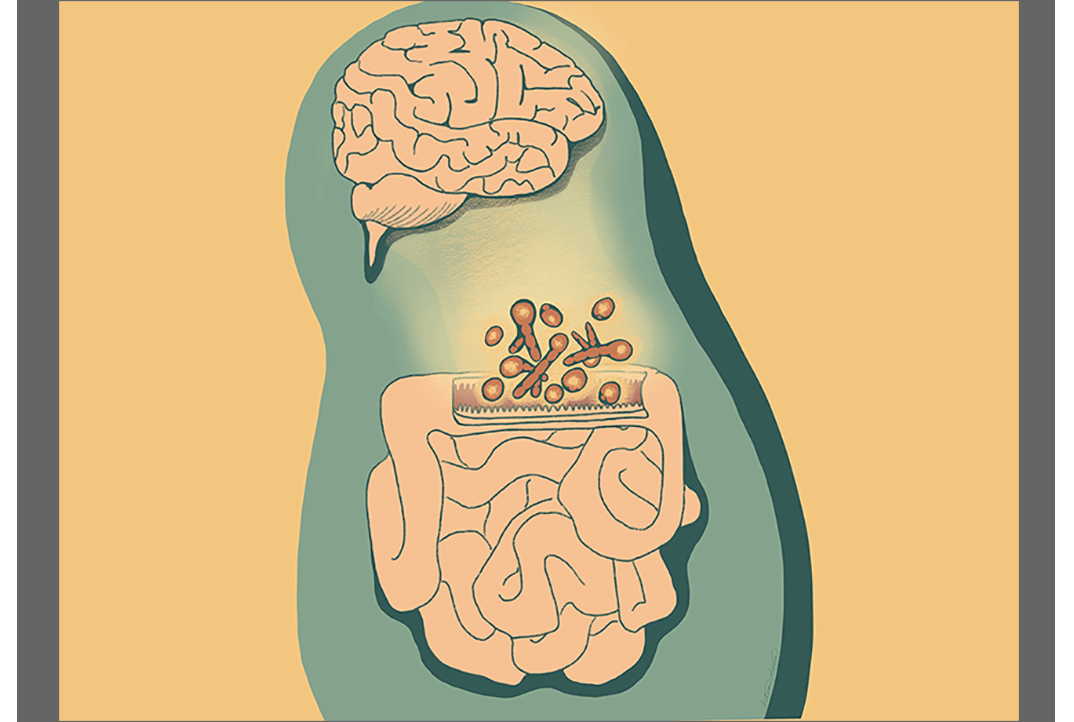Gut fungi interact with immune cells to protect against intestinal injury and infection, according to a recent study. Additionally, specific gut fungi helps to promote social behavior, expanding on the role of a “gut-immunity-brain axis.”
“We have made a direct link between a major immune pathway induced by fungi in the lining of the intestine and signals in the nervous system that impact animal behavior,” explains senior author Dr. Iliyan Iliev, associate professor of immunology in medicine in the Division of Gastroenterology and Hepatology at Weill Cornell Medicine, in a statement. Iliev is also a member of the Jill Roberts Institute for Research in Inflammatory Bowel Disease.
The lining of the intestine is constantly juggling the need to absorb water and nutrients from food while also acting as a barrier to stop gut microbes from entering the bloodstream. In a mouse model, researchers identified the location of different fungi species living in the intestine and found certain fungi hung around specific areas near the gut lining. The findings suggest these specific fungi species closely interact with nearby epithelial cells.
Evidence of a fungi-epithelial cell relationship was found when researchers observed mice carrying these fungi species were less likely to have intestinal injuries or have a bacterial infection. “There is this harmony—a kind of communication between or across different types of organisms,” says Dr. Iliev.
A separate behavioral experiment in mice also found the presence of specific fungi species was more sociable compared to animals without gut fungi. These effects came from fungi’s activation of T cells which secreted immune signaling proteins known as cytokines IL-22 and IL-17.
IL-22 works to improve the intestinal barrier while IL-17 enters the bloodstream and interacts with receptors connected to the brain. Genetically modified mice that did not have the IL-17 receptor in their neurons did not show any increased social behavior in the presence of gut fungi.
The study is available to read in the journal Cell.
